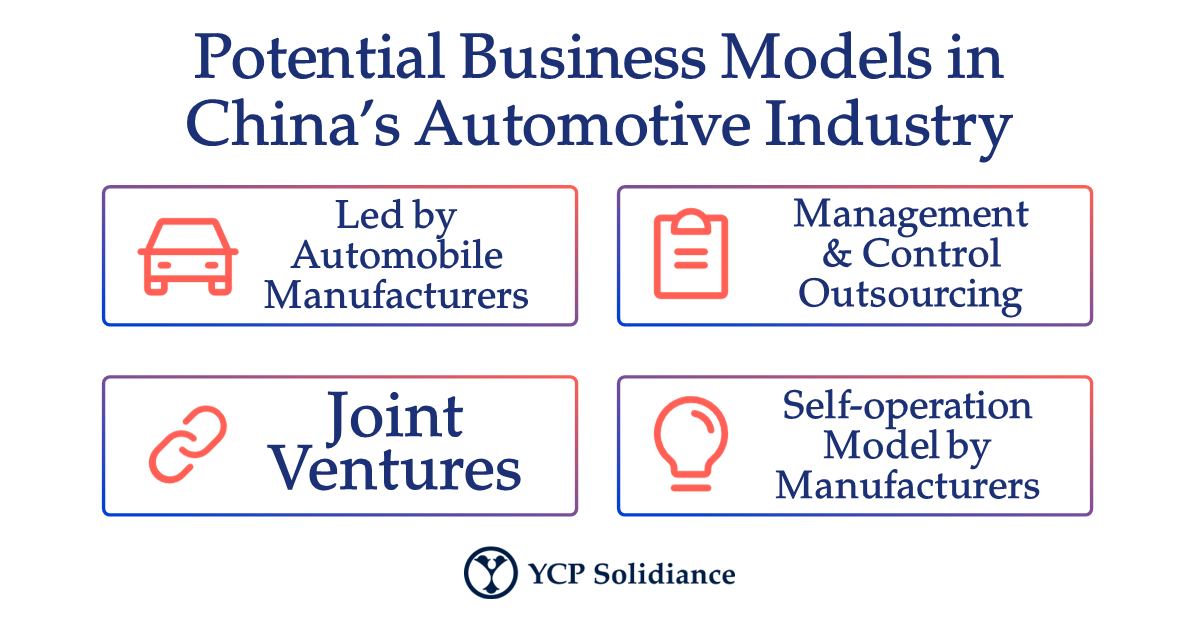Are China-Made Vehicles The Future Of The Auto Industry?

Table of Contents
The Rise of Chinese Automakers
For years, China was primarily known as a manufacturing hub for global auto brands. However, the past decade has witnessed the meteoric rise of homegrown Chinese auto brands, transforming the nation into a major automotive powerhouse. Companies like BYD, NIO, XPeng, and Great Wall Motors are no longer just domestic players; they are actively competing on the global stage.
-
Rapid Growth and Technological Advancements: Chinese automakers are investing heavily in research and development, resulting in significant technological leaps, particularly in the electric vehicle sector. They are rapidly closing the gap, and in some cases surpassing, established brands in areas like battery technology and autonomous driving capabilities.
-
Increasing Market Share: These companies are not only dominating the Chinese domestic market but are also steadily increasing their market share internationally. Their success is fueled by a combination of competitive pricing, innovative designs, and aggressive marketing strategies.
-
Global Expansion Strategies: Chinese automakers are employing various strategies to penetrate international markets, including establishing local manufacturing facilities, forming strategic partnerships with foreign companies, and adapting their models to meet the specific needs and preferences of different regions.
-
Examples of Success:
- BYD's success with its Blade Battery technology and diverse range of electric and hybrid vehicles.
- NIO's innovative battery swapping technology and premium electric SUVs.
- XPeng's advanced driver-assistance systems and stylish EV designs.
- Great Wall Motors' expansion into various segments, including electric and off-road vehicles.
Competitive Pricing and Affordability
One of the key factors contributing to the success of China-made vehicles is their competitive pricing. By leveraging lower manufacturing costs and economies of scale, Chinese automakers are able to offer high-quality vehicles at significantly lower prices than many established brands. This affordability is a major draw for price-sensitive consumers worldwide, particularly in developing markets.
-
Cost-Effective Manufacturing: The efficiency of Chinese manufacturing processes, combined with readily available and relatively inexpensive labor and materials, allows for substantial cost savings that are passed on to the consumer.
-
Appeal to Budget-Conscious Buyers: In a global market increasingly focused on value for money, the affordability of Chinese cars provides a compelling alternative to more expensive options, opening up car ownership to a wider demographic.
-
Price Comparison: A direct comparison of similarly specced vehicles from Chinese and established brands often reveals a significant price difference, highlighting the cost advantage of China-made vehicles.
Technological Innovation in Electric Vehicles (EVs)
While affordability is a key factor, Chinese automakers are also at the forefront of technological innovation, particularly in the burgeoning electric vehicle market. They are making significant strides in battery technology, electric motor design, and autonomous driving systems.
-
Advancements in Battery Technology: Chinese companies are developing innovative battery technologies, including solid-state batteries and advanced battery management systems, that promise longer range, faster charging times, and enhanced safety.
-
Leading the EV Transition: The rapid advancements in Chinese EV technology position the country to be a leader in the global transition to electric mobility, potentially reshaping the entire automotive landscape.
-
Examples of Innovation:
- BYD's Blade Battery technology, offering improved energy density and safety.
- NIO's advancements in battery swapping technology, offering quicker charging solutions.
- XPeng's sophisticated driver-assistance systems, paving the way for autonomous driving.
Challenges and Obstacles
Despite the remarkable progress, Chinese automakers still face several challenges in their quest for global dominance.
-
Brand Perception: Overcoming negative brand perceptions and establishing trust in international markets remains a crucial hurdle. Building a strong global brand identity takes time and consistent effort.
-
Quality Concerns: Addressing potential concerns regarding quality control and reliability is vital to ensuring long-term success and building consumer confidence.
-
Supply Chain Disruptions: Global supply chain disruptions and geopolitical factors can significantly impact production and distribution, presenting ongoing challenges.
-
International Regulations: Navigating differing regulations and standards in various markets requires careful planning and adaptation.
-
Strategies for Overcoming Challenges:
- Investment in robust quality control measures.
- Strategic partnerships with established brands to enhance brand image.
- Diversification of supply chains to mitigate risks.
- Compliance with international safety and emission standards.
Conclusion
The rise of China-made vehicles is undeniably reshaping the global automotive industry. Their competitive pricing, technological advancements, particularly in the EV sector, and aggressive global expansion strategies are undeniable strengths. However, overcoming challenges related to brand perception, quality control, and navigating global supply chain complexities is crucial for sustained success. The future of the auto industry is intricately linked to the continued growth and innovation of Chinese automakers. Stay informed about the latest developments in Chinese automotive technology and its impact on the global car market. Continue researching China-made vehicles to understand their transformative potential and how they will shape the future of driving.

Featured Posts
-
 Economic Uncertainty The Difficult Path Ahead For The Next Fed Chair
Apr 26, 2025
Economic Uncertainty The Difficult Path Ahead For The Next Fed Chair
Apr 26, 2025 -
 Ftc Probe Into Open Ai Implications For The Future Of Ai
Apr 26, 2025
Ftc Probe Into Open Ai Implications For The Future Of Ai
Apr 26, 2025 -
 5 Key Dos And Don Ts To Secure A Role In The Private Credit Boom
Apr 26, 2025
5 Key Dos And Don Ts To Secure A Role In The Private Credit Boom
Apr 26, 2025 -
 2700 Miles From Dc A Rural Schools Experience Of Trumps First 100 Days
Apr 26, 2025
2700 Miles From Dc A Rural Schools Experience Of Trumps First 100 Days
Apr 26, 2025 -
 The Long Reach Of The Presidency A Rural Schools Perspective 2700 Miles From Dc
Apr 26, 2025
The Long Reach Of The Presidency A Rural Schools Perspective 2700 Miles From Dc
Apr 26, 2025
